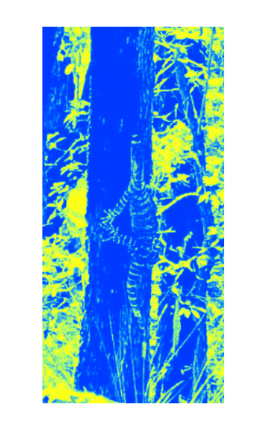ADJECTIVES
ADJECTIVES ARE DESCRIBING WORDS. They answer primordial questions like: which one?, What kind?, how many?, and what is it like? In some languages like French or Vietnamese, the adjectives go after the noun. Not so in English... the adjective is almost always in front of the noun.What kind of house? .......... A large, yellow brick one.
How many rooms? .......... There are six rooms.
Types of Adjectives
THERE ARE many types of adjectives including articles, determiners and demonstratives. Some determiners (such as "other") can also be a pronoun.
Limiting Adjectives
Another type of adjective is the limiting adjective, comprising cardinal numbers, ordinal numbers ("first", "second", "last", etc)...Restrictive Adjectives
COMPARATIVES & SUPERLATIVESBeware of empty comparisons.
See exercise on comparatives and superlatives here.
Graded & Non-Graded Adjectives
SOME ADJECTIVES can be shaded by adverbs to describe their degree (for example, "hot"). Others are absolutes (for example, "finished"). Some examples:
Fundamentally different.
Excruciatingly uncomfortable.
Quantifying Adjectives
A QUANTIFIER IS A word or phrase used to talk about quantities, amounts or degree. They can be used with a noun (as a determiner) or without a noun (as a pronoun). Is there any cheese? (any as a determiner) Yes, there's a little. (a little as a pronoun) . "Least" is the superlative form of "less". There is some debate over the difference between "less" and "fewer". Generally, "less" is used with uncountable nouns, while "fewer" goes with uncountable nouns. Superlatives are sometimes used to add emphasis without making a direct comparison, although it is frowned upon by some grammarists. Both "in" and “un” are used as prefixes to mean “not”, but there seems to be no clear rule about which one goes with which adjective. Possibly “un” is supposed to be used with adjectives of Germanic origin, while “in” goes before Latin words, but I can think of many exceptions to this rule (like "unoriginal"), so go figure. I also remember discussing the difference between “meaningless” and “senseless”. A lot of my students make a mistake with this. While they are both adjectives, there is a significant difference between them. meaningless and senseless. is that meaningless is lacking meaning while senseless is bereft of feeling or consciousness; deprived of sensation; unconscious; insensible.Adjective Clauses
LET'S CONSIDER the opening sentence of this page: Adjectives are describing words. In this sentence, "describing" is the adjective, but it looks like a verb (it is actually a participial adjective.) It is a present participle, because it always describes. In contrast to a past participle, it is active, and present. In the above sentence, "describing" is a simple adjective because it is only one word. However, it is possible to rephrase this sentence as an adjective clause (Adjectives are words which describe.) This type of construction is known as a relative clause. An adjective clause comprises a relative pronoun + Subject (S) + Verb (V), or a relative pronoun acting as a S + V. Unlike ordinary adjectives, such clauses go after the noun they modify. In the example above, "which describe", "which" is a relative pronoun acting as subject, and "describe" is the verb. Thus, you can see more proof of the link between adjectives and verbs. It suggests again that all adjectives answer What? Who? When? questions about the noun. Another kind of adjective clause is the participle clause. Like other phrases, they do not contain their own subject. Instead, they comprise a participle, modifier and a pronoun or noun phrase, and can go before or after the noun they modify. Thus:The house looked beautiful decorated with bright lights.
Compound Adjectives
LIKE COMPOUND nouns, compound adjectives are usually separated with a hyphen. They can combine adjectives, nouns or adverbs with each other, or with present and past participles. hen .



Can't open random/book_lesson
No files in directory to display.
Can't open random/copyright
No files in directory to display.
Can't open random/donations
No files in directory to display.
